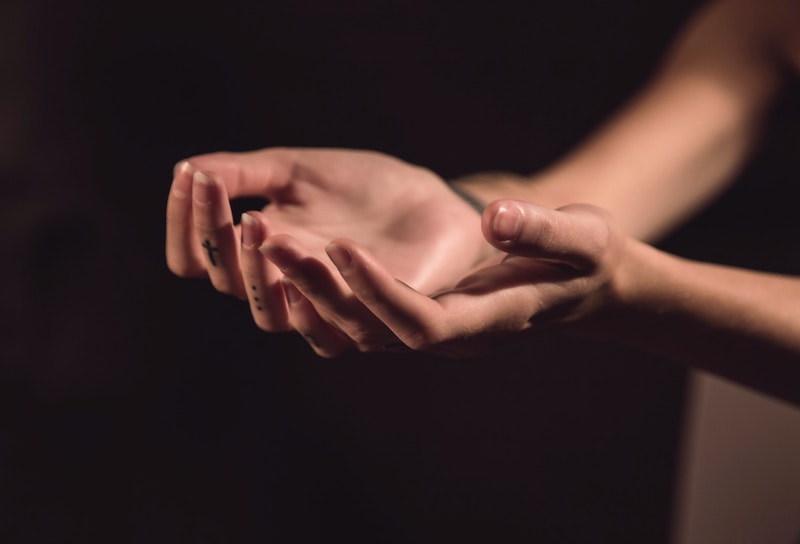Yesterday, I talked about masculinity. Today some thoughts on femininity.
Femininity is not a Flaw
So much of (my perception of) feminism these days is a gung-ho need to prove women are better than men. Yes, there’s no doubt the patriarchy has not always been, even rarely been, kind to women. For centuries, women were basically property without rights and with full responsibility for children.
Obviously, the mindsets surrounding women were flawed. The church hasn’t done nearly enough to rescue and protect women. And the men who were assigned by God to be protectors and providers have turned away from that role far too often.
And after centuries of the idea that being feminine was basically to be broken, to be a less-than version of a man, I’m really okay with some conversation that challenges the utter ridiculousness of that idea.

However, most of what I see in feminism is not so much about establishing the basic equality of femininity, as much as trying to take over. It’s not about righting wrongs as much as putting femininity in a place of power and authority over men.
But power plays will not help us see masculinity and femininity in their proper contexts. And they are causing a great deal more damage to both men and women. Despite all the cultural yelling matches these days, femininity and masculinity are not actually at odds with each other. At least, I don’t think they are.
Not a Continuum
Men and women, masculinity and femininity, do not exist on a continuum. But many people treat them that way. Women on one end, men on the other. Strength on one side, softness on the other. That which makes men “manly” on this end, that which makes women “girly” on that one.
The problem with this idea is that it sets masculinity and femininity against each other. It’s a tug of war. And if men are “too close” to the feminine side of things (or if women behave with more masculine traits), then that somehow counts against them.
But I don’t think this view is particularly accurate. Or helpful. It sets up the cultural conversation to allow for phrases like toxic masculinity and for concepts like gender fluidity. Both of which I consider seriously flawed.
So if the continuum isn’t how masculinity and femininity work, what’s a better metaphor?
Buckets are Better
Masculinity and femininity are not opposite sets of characteristics. They are a total set of characteristics. Instead of thinking of masculinity and femininity on a number line from one-to-ten, we need to think of those traits as ingredients in buckets.

All of the ingredients are available for every recipe, but they are included in greater or lesser amounts.
Because we are complete human beings, every one of us has a combination of both masculine and feminine traits. Some women have more strength than other women. Some men have greater sensitivity than other men. Women are generally more emotionally connected to their world. Men are generally more decisive and absolute.
But every woman can be decisive when she needs to be. And any mother worth her salt learns to be absolute when the child requires a firm “no.” And men regularly engage with their family and children on emotional levels (though with perhaps less practice sometimes).
We are not individual markers on a long continuum. We are individuals with a unique-to-us combination of both masculine and feminine traits.
Ingredients and Results
When cooking, we combine ingredients in different ways and different ratios and get wildly different results.
- Flour+liquid+yeast+salt=bread
- Flour+fat+liquid+leavening=biscuits
- Eggs+liquid+flour+leavening=pancakes
You can make an egg-based bread. You get crepes instead of pancakes by adding more of some things and less of others. You get the idea, I hope.

Like baked goods, people come in many varieties. And when it comes to gender traits, that also means a lot of freedom.
See, I’m not a particularly “girly” woman. I’m not a natural nurturer. I am fiery and dramatic and absolutely hate crafting in a group. My reaction to the weekly crafts at my former MOPS group resulted in a lot of good-natured teasing from my friends. (And if I did do the craft, they all pretended to be shocked!)
It is not easy to accept yourself, or be accepted, when femininity exists on a scale. I’m too close to too many masculine traits to be considered gentle and sweet. I’m not mean, but neither am I anywhere close to the traditional ideal of femininity.
And that’s okay.
Neither femininity nor masculinity is better. Or worse. Or right. Or wrong. They’re different. And as complete human beings, we are a combination of both sets of characteristics.
Women are strong and powerful and smart and need to be challenged. So are men. And women are gentle and lovely and creative and nurturing. And so are men.
My bucket has different ingredients in different amounts. So does yours. It’s time we stop trying to pin ourselves down on some continuum, or measuring ourselves against where other people fall on that continuum. When we do, we can honor who we are, who they are, and go on about our merry little lives.
Wouldn’t that be lovely.
Own Your Bucket
Start by owning what’s in your bucket. Hold it up and really examine what’s inside. Not with all the moral judgments that I mentioned yesterday (this is good, that is bad, this is worst of all) and that tend to be our first reaction.
Just hold your qualities up and look at them. Lay them out without judging them for once.
They are gifts. For you, to enable you to be the person and do the things God appointed for you to be and do. God doesn’t make mistakes. Your blend of characteristics is not a mistake. So breathe. You are perfectly made by God, just as you are.
Then, go dump out your bucket. Look for the places and people you are particularly qualified to help. And help there. Do what you can, where you can. Use your masculine and feminine qualities to do more good in your neighborhood.
Femininity is not a curse. Masculinity isn’t either. They are unique and powerful qualities that we can use to change the world. So let’s get started.



